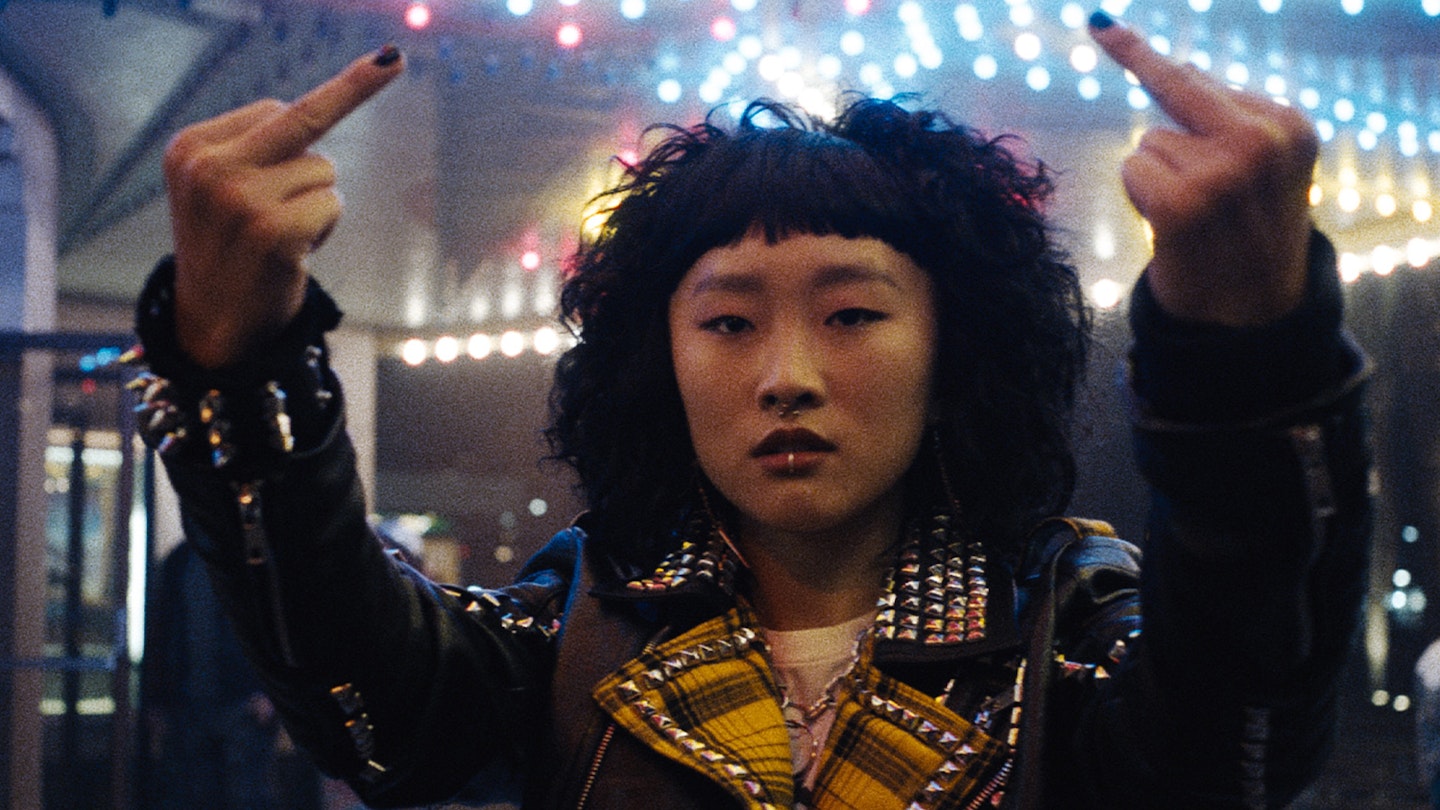From its pulpy title, to its retro-computerised intro with Giorgio Moroder-style synths, to its opening voiceover (“Oakland in ’87 was hella wild”), it’s clear within seconds that Freaky Tales aims for culty midnight-movie status. On that front it largely succeeds, boasting a scrappy energy, outsider outlook, and local focus that feels like a sharp pivot from the slick universe-expansion of writer-directors Anna Boden and Ryan Fleck’s previous film, MCU behemoth Captain Marvel. As an anthology of stories inflected with supernatural flourishes — and occasional bursts of ultra-violence — the film’s title proves apt: here lie four freaky tales, no more, no less.

As per most anthologies, some stories are better than others. The opening chapter — in which two loved-up punks (Jack Champion, Ji-young Joo) lead a fightback against a local gang of Nazi skinheads — is a blast, with rebellious use of scrawly animation that invades the screen. The fourth and final tale — in which real-life basketball star Sleepy Floyd (Jay Ellis) takes violent revenge on intruders seeking to swipe his Asian fine-art collection — is the schlockiest of the bunch, taking things out on a bloody bang. In-between, the story of rising rap duo Danger Zone (Dominique Thorne, Normani) finding their place on stage, and a third chapter in which a hitman (Pedro Pascal) struggles to evade his violent past, don’t pack as much punch. Notably, they’re the least freaky of the four; the freakier these tales, the more entertaining.
This is a vibe as much as it is a movie.
As with Pulp Fiction, the stories intersect and criss-cross with each other: two tales begin with different punters leaving the same screening of The Lost Boys; Ben Mendelsohn crops up as nefarious force ‘The Guy’ in multiple chapters; all stories are catalysed by a blast of “cosmic green shit”, an emerald lightning storm that empowers the fight-back against evil forces (a common theme throughout). If it’s scattershot, that feels like the point: the aim here is to capture Oakland as the 11-year-old Fleck — who grew up in nearby Berkeley — would have remembered it, channelled into its own work of pulp fiction. Sleepy Floyd really did play for the Warriors, even if he didn’t slice baddies with a samurai sword; rapper Too Short (after whose 1987 hit song the film is named) is fictionalised in Chapter 2, while his real counterpart narrates.
The result, overall, is relatively slight. But it’s fun, inventive, just silly enough, and crowbars in Tom Hanks as a video-shop owner who hosts shady backroom poker games. This is a vibe as much as it is a movie — and that vibe is just about freaky enough.

